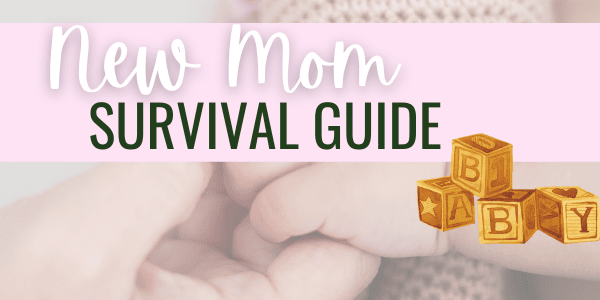SIGNS YOU NEED HELP BREASTFEEDING
written by Andrea Tran RN, BSN, MA, IBCLC
Everyone talks about how good breastfeeding is for both mom and baby.
You’ll hear how natural it is. What you don’t hear is how hard it can be.
There, I said it. Breastfeeding can be really hard.
If you are struggling as a new nursing mom you may find yourself asking, when should I ask for help with breastfeeding?
I got you mama.
Read on for the signs you need help breastfeeding.
SIGNS OF ADEQUATE BREASTFEEDING
Many new mothers worry about whether breastfeeding is going well. The good news is there are many signs that should reassure you that breastfeeding is, in fact, on track.
When looking for these signs it is essential to consider your baby’s age. What is reassuring on day two would be a big red flag on day seven.
If you are wondering how to tell if breastfeeding is going well, look for the following signs.
Signs Your Baby Is Getting Enough Before Your Milk Comes In
- Your newborn is feeding a minimum of eight times in 24 hours.
- Most babies will have a day or two where they cluster feed and may feed 15-20 times in 24 hours.
- These cluster-feeding sessions are normal and encourage your milk to come in and stimulate an abundant milk supply.
- The cluster-feeding most often happens during the late night and early morning hours.
- Most babies will have a day or two where they cluster feed and may feed 15-20 times in 24 hours.
- Most feeding sessions last ten or more minutes of vigorous sucking.
- Feeding sessions are usually shorted during periods of cluster-feeding.
- You hear or see swallowing every 4-5 sucks.
- Swallowing sounds like a soft “cah” or soft click. Loud clicking is not normal.
- When a baby swallows they pause in the middle of the suck.
- Your baby has a wet diaper that equals the number of days old she is.
- Baby has a bowel movement at least 1-2 times each day.
- Weight loss is no more than 7%.
Signs Your Baby Is Getting Enough After Your Milk Is In
The milk should come in by the fifth day, with the day of birth being counted as the first day. Because babies are born at all hours it can be helpful to think in terms of 24-hour periods as opposed to days.
- A minimum of eight feeding sessions every 24 hours.
- More frequent feeding can be normal.
- Periods of cluster-feeding continue to be normal but they usually only last one or two hours.
- Swallowing is heard every 1-2 sucks for an average of ten minutes.
- At least six wet diapers/24 hours.
- At least four bowel movements/24 hours.
- Baby is back to birth weight by ten days.
- Weight gain of an average of an ounce per day.
This might also be interesting:
– How to stop breastfeeding at night
– 15 genius breastfeeding benefits for mom and baby
– The best bassinets for breastfeeding mothers
– Protein shakes and breastfeeding
Signs of a Good Latch
A good latch is critical for both adequate milk transfer and comfortable nursing.
- Baby is positioned tummy to tummy, chest to chest and pulled in close to your body.
- Baby should not have to turn her head to latch on.
- Chin is pressed into the breast
- Nose is not touching or barely touching the breast.
- If baby’s nose is pressed into your breast then pull his bottom in closer to your body.
- Baby has enough breast in her mouth that there is no discomfort.
- Baby’s top and bottom lips are flanged out.
- Your nipple is round and normal color when baby comes off your breast.
YOU WORRY ABOUT BREASTFEEDING
But, what if all the signs are reassuring and you’re still worried about whether breastfeeding is really going okay?
While there are physical signs you should get help with breastfeeding, you should never ignore the emotional aspects.
Are you frequently worrying about whether your baby is getting enough from breastfeeding?
Do you wonder if certain sensations are normal or concerning?
If you answered yes to either of those questions then you should absolutely get a lactation consultation.
Often meeting with an experienced breastfeeding professional who can watch you breastfeed and answer your questions is just what you need to put your mind at ease.

YOUR NIPPLES HURT OR HAVE SIGNS OF TRAUMA
I’m not going to lie to you and say breastfeeding won’t hurt at all. The truth is that breastfeeding often causes some nipple discomfort in the early days.
This is what to expect from what is considered “within normal limits” in terms of nipple discomfort:
- It began within the first four days after your baby was born
- It occurs when baby first latches on and goes away within the first minute of sucking
- When your baby sucks it should feel a strong tugging sensation but it should not feel like your nipple is being pinched.
- Your nipple is round when baby detaches.
- It should not be creased or lipstick-shaped
- After baby comes off of your nipple it is normal color (pink or brown)
- The nipple should not be blanched white or purple
If you are having pain throughout a feeding or any pain that you would describe as more than mild have a lactation consultant watch a feeding. Sometimes very minor adjustments in how you are positioning or latching your baby can make all the difference in the world.
Nipple Trauma
You should meet with a lactation consultant ASAP if you have any signs of trauma to your nipples.
- Cracks
- Bleeding
- Blisters
- Bruising
BREAST PAIN
Not all breast pain is a sign you need help breastfeeding. Many women feel some discomfort when their milk comes in.
Your milk should come in by the fifth day after birth.
When your milk comes in your breasts will start increasing the amount of milk being produced.
There is often swelling that occurs around the milk-producing glands. This is called primary breast engorgement.
After the initial period of breast engorgement, you can get engorged any time your breasts get very full with milk.
That is called secondary breast engorgement.
Another thing that can cause breast discomfort is when your milk lets down.
The medical term for this is the milk ejection reflex. Women have described it as a heaviness in their breasts to a severe pins and needles sensation.
Sensation from letdown can occur any time your milk lets down, even if your baby is not breastfeeding.
Some women have said that simply hearing any baby cry can cause their milk to let down. It usually lasts several seconds.
However, there are some types of breast pain that are warning signs that something isn’t right.
The three most common problems are a clogged duct, mastitis, and a breast yeast infection.
Symptoms of a Clogged Duct
- Hard painful lump in the breast
- May be reddened
Symptoms Of Mastitis
- Hard, painful lump in the breast
- Red, painful area of the breast
- Fever
- Flu-like symptoms: body aches, extreme tiredness, chills
Symptoms of a Breast Yeast Infection
- Shooting, burning sensation in the breast
- Often accompanied by a yeast infection in the nipple
- Nipples may be bright pink
- Itchy nipples
- Skin may be flaky
- Baby may have signs of thrush in their mouth
- White patches that you can’t wipe away
- A white tongue
THERE ARE SIGNS THAT YOUR BABY IS NOT GETTING ENOUGH BREAST MILK
One of the most common concerns new mothers have is whether their baby is getting enough from breastfeeding.
Several things need to happen for a baby to get enough from breastfeeding.
- Sufficient milk supply
- Adequate number of breastfeeding sessions
- Breastfeeding sessions that are long enough
- Frequency and duration of feeding sessions will vary from baby to baby and at different ages. It comes down to what your baby needs to get enough milk.
- Baby able to suck strongly enough to transfer the milk
Adequate weight gain is always the final deciding factor that says a baby is getting enough from breastfeeding. There are some warning signs though. If your baby is experiencing any of these signs get a weight check ASAP and follow up with weight checks every 1-2 weeks.
It is always a good idea to contact a lactation consultant and your infant’s health care provider if there is inadequate weight gain or if you are concerned about whether your baby is getting enough from breastfeeding.
Potential warning signs of inadequate intake in an exclusively breastfed baby include:
Not enough wet or dirty diapers for baby’s age.
YOUR BABY IS NOT FEEDING FREQUENTLY ENOUGH
How often your baby eats will frequently change. In the first couple of months, babies need to eat a minimum of eight times a day to get enough to eat. And when I say a day, I mean 24 hours.
Beyond that, there is a tremendous amount of variation between babies when it comes to feeding frequency. A baby’s age can affect how frequently they want to breastfeed also.
Some babies will only eat a few times in the first 24 hours. Starting with the second 24 hours all babies should eat a minimum of eight times/24 hours. Many will eat more often than twelve times a day until your milk comes in.
Some babies will get what they need from eight feedings a day and others will need to eat twelve times a day.
There are babies who will continue to eat frequently for the first six months. Others may drop to as few as six feedings a day.
It is a sign you need help with breastfeeding if your baby is less than eight weeks old and is not eating at least eight times a day.
Your Baby Consistently Wants To Breastfeed More Than 12 Times A Day
All babies will have growth spurts which means they will feed more frequently for a day or sometimes a few days.
There are some unique situations that might require a baby to always require more than 12 feedings in 24 hours. However, it is recommended to work with a lactation consultant if your baby always wants to eat that frequently. She may be able to give you some tips that can help your baby get more milk from feeding sessions.
BREASTFEEDING TAKES A LONG TIME
For the first few months, an average feeding generally takes about 40-60 minutes. This includes burping and diaper changes.
If your baby takes longer than an hour call a lactation consultant for an appointment. She can help identify if there is any reason for concern. She can also give you tips to make feedings more efficient.
YOUR MILK HAS NOT COME IN BY THE FOURTH DAY
If you have reached the fourth day after giving birth and you have no signs that your milk is starting to come in you should call a location consultant or your baby’s health care provider.
The early signs of the milk coming in can be subtle:
- Your breasts feel warm or tingly.
- Your breasts feel firmer or heavier.
- Your breasts are larger. If you are not sure ask your partner if they have noticed any changes.
- Your baby is swallowing more frequently when breastfeeding.
YOUR BABY HAS LOST TOO MUCH WEIGHT OR IS NOT GAINING ENOUGH WEIGHT
It is normal for newborns to lose weight in the first few days of life. Up to 7% of the birth weight is generally not a cause for concern.
If a mother’s milk has not started to come in and her baby has lost 7% then a feeding session should be observed and a lactation consultant should evaluate their breastfeeding routines.
Supplementation will probably be recommended if the weight loss reaches 10% or more.
Once the milk has come in and is flowing a baby is expected to gain 5-7 ounces a week for the first couple of months. Weight gain will continue as your little one gets older but not at quite the same rate as the first few months.
A baby is expected to be back to their birth weight by two weeks.
Any time supplementation is advised it is essential to meet with a lactation consultant. The priority is making sure the baby gets enough to eat. However, you will also want to determine what is causing the weight issues and how to rectify the problem.
YOUR BABY CRIES A LOT DURING OR AFTER FEEDING
Feeding should make your baby happy. If it is causing distress you will want to meet with a lactation consultant.
If your baby is fussy at most feedings but not all then make a video of a session where they are fussing. You can’t always count on the fussy behavior to occur during a consultation.
YOUR BABY SPITS UP A LOT
If a baby spits up a lot but is generally happy and gaining weight at a normal rate we call them a happy spitter.
If your baby is spitting up and not gaining weight at the expected rate or is very fussy you should get it checked out.

LATCHING IS DIFFICULT
Hopefully, you will have gotten lots of help in the hospital learning how to get a deep, comfortable latch.
Reach out for help if you are struggling to get your baby latched, or if your baby won’t stay latched.
YOUR BABY REFUSES THE BREAST
Some people say that there are babies who just don’t like breastfeeding. That is not accurate because babies are born with an instinct to breastfeed.
If a baby refuses to breastfeed there is a reason for it. It could be something as simple as they are not comfortable in the position they are being held. It could also be more complex.
A lactation consultant can often help you figure out what is causing the breast refusal and help you create a plan to work through this very challenging problem.
YOU ARE NOT ENJOYING BREASTFEEDING
While breastfeeding is the natural way to feed your baby not every mother enjoys it. There can be many reasons for this.
Talking to a lactation consultant may not make you love breastfeeding. But it could help resolve things that are making the experience less than what you hoped for.
YOU WANT REASSURANCE ABOUT HOW YOUR BREASTFEEDING EXPERIENCE IS GOING
You may check all the boxes that say breastfeeding is going well but you are still worried.
Don’t worry! Get a lactation consult. An IBCLC should be able to put your mind at ease and show you things to look for that will help you feel more confident about your breastfeeding journey.
YOU ARE WONDERING IF YOU SHOULD QUIT BREASTFEEDING
Over the years I have been asked by many mothers if they should quit breastfeeding. I always say the same thing. That is a decision that only a mother should make.
Only you know how important breastfeeding is to you. Don’t let anyone else tell you that you should stop if you don’t feel confident about that decision.
There are also options.
If direct breastfeeding is not working out many mothers choose to pump and bottlefeed their breast milk. If breastfeeding is difficult it can sometimes help to take a break from direct breastfeeding and pump instead.
Talking to a lactation consultant can help you come up with a plan that works best for you and your family.
WHERE CAN YOU GET HELP WITH BREASTFEEDING?
If you gave birth at a hospital they should either have a lactation program or can refer you to someone in private practice.
You can also check the United States Lactation Consultant Association (USLCA) Find An IBCLC page.
Some healthcare providers have lactation consultants in their offices or can provide you with the names of lactation consultants in your area.
There are also many consultants who do consults online.
FINAL THOUGHTS ON SIGNS OF ADEQUATE BREASTFEEDING
Breastfeeding will be a journey. There will be times when it’s an easy and enjoyable experience. For those times when you are struggling, have questions or simply need reassurance there is lots of help available.
Andrea Tran is a Registered Nurse and International Board Certified Lactation Consultant. She has her Master’s in Health and Wellness with a focus in Lactation. She has been working with expectant and new families for over 35 years. She has three adult children and experienced different challenges throughout her breastfeeding journey with each of them. She is currently retired.








